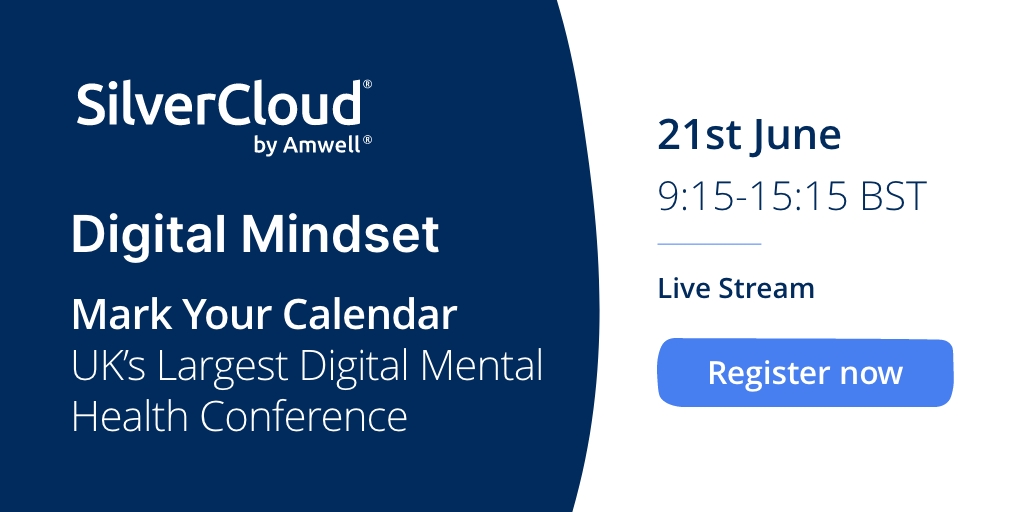Mental health has become important in all areas of life. As part of their duty of care to their workforce, employers have both a moral and legal duty to protect the mental wellbeing of their staff. It is essential for employers to be familiar with these regulations and guidelines and ensure they are implemented in the workplace.
In this article we look at the rules, regulations and guidelines relating to workplace mental health. Regulations are often different between Great Britain and Northern Ireland and so we will note where each regulation applies.
What are the main regulations around mental health at work?
This Approved Code of Practice is aimed at employers, managers and other duty holders for health and safety, including self-employed people. This covers both Great Britain and Northern Ireland.
These regulations require employers to assess the risks to their employees' health and safety, including risks to their mental health, and take measures to control those risks. It places a legal duty on employers to protect employees from stress at work.
Equality Act 2010 – applies to Great Britain
The Equality Act 2010 applies to Great Britain only and replaced the Disability Discrimination Act 1995 (DDA). The DDA still applies in Northern Ireland, not the Equality Act 2010 (see below).
This act prohibits discrimination on the grounds of disability, which includes mental health conditions that has a substantial long-term effect on your daily life. Employers are required to make reasonable adjustments to support employees with mental health conditions.
The equalities act prohibits employers from dismissing staff on the basis that they are struggling with their mental health. Employers must make reasonable adjustments to a worker’s role and hours if they are having mental health issues before considering other options.
Disability Discrimination Act 1995 – applies to Northern Ireland
The Disability Discrimination Act 1995 defines disability as physical or mental impairment which has a substantial and long-term adverse effect on a person's ability to carry out normal day-to-day activities.
If a worker’s mental illness has a significant, adverse, and long-term effect on their ability to carry out normal day-to-day activities, it is likely that they are protected under disability discrimination law.
Under this act it is illegal to discriminate against any member of staff for their mental illness and states that reasonable adjustments must be made for them so that they are not put at a disadvantage due to their disability.
Health and Safety at Work Act 1974 – applies to Great Britain
This legislation applies to Great Britain but not Northern Ireland, where the main legislation is the Health and Safety at Work (Northern Ireland) Order 1978 (see below).
The Health and Safety at Work Act 1974 sets out the general duties of employers and employees to ensure the health, safety, and welfare of all workers in the workplace, including their mental health. Work related stress is included in section 2 of the act, that requires employees to remove or reduce stress as far as is reasonably practical.
The Health and Safety at Work (Northern Ireland) Order 1978 – applies to Northern Ireland
This is the main legislation in Northern Ireland covering health and safety at work. Article 4 specifies that employers conduct a suitable and sufficient risk assessment, which includes assessing the risks to mental health.
What are the main benefits for supporting positive mental health at work
Outside of the regulations, supporting workplace mental wellbeing can have a number of benefits to employers.
- Raising productivity and staff retention – Healthy and happy employees are less likely to be absent and more prone to be productive and stay in their role.
- Reducing Presenteeism – ‘Presenteeism’ – being present at work but unable to fully function is becoming a bigger problem than staff absences.
- Improves reputation – Employees with a strong mental health policy helps to attract potential applications. Currently employees are also more likely to recommend the organisation to improve the reputation of the company.
What are the main guidelines to support employers’ mental health practices?
The Health and Safety Executive (HSE) Management Standards
These standards provide a framework for managing work-related stress and support employers in identifying and addressing potential sources of stress in the workplace.
They cover six key areas of work that affect not only mental health but related problems such as poor health, lower productivity and increased accident and sickness absence rates.
- Demands – this includes issues such as workload, work patterns and the work environment.
- Control – how much say the person has in the way they do their work.
- Support – this includes the encouragement, sponsorship and resources provided by the organisation, line management and colleagues.
- Relationships – this includes promoting positive working to avoid conflict and dealing with unacceptable behaviour.
- Role – whether people understand their role within the organisation and whether the organisation ensures that they do not have conflicting roles.
- Change – how organisational change (large or small) is managed and communicated in the organisation.
This is an independent review of mental health in the workplace, commissioned by the UK government in 2017.
Thriving at Work sets out what employers can do to better support all employees, including those with mental health problems to remain in and thrive through work. It sets out six core standards for employers to follow to support employee mental health, including promoting open conversations about mental health and providing appropriate support:
- Make a mental health at work plan and tell workers about it.
- Make sure that workers know about mental health.
- When workers are finding things hard, give them the chance to talk about mental health and the help and support they can get.
- Make sure workers have control and a sense of purpose about their work. Working should make people feel good.
- Make sure that managers and supervisors manage people properly.
- Make regular checks on workers’ mental health and their wellbeing.
How do employers support their staff with digital tools and resources?
Broadening mental health support so it’s accessible, tailored to employees’ needs and circumstances, and delivered in a convenient way, can make a difference.
Digital mental health solutions offer this flexibility. They can be easily integrated into broader wellbeing provision and used alongside human support, enabling employers to deliver support at scale, but in a personalised way. And crucially, they are accessible and anonymous, letting employees take control of their mental health while removing the stigma that might discourage them from asking for help. Evidence-based digital interventions are also proven to deliver results.
Read our Employer Guide to the Benefits of Digital Mental Health Solutions to Support Employee Wellbeing.
Want to find out more?
We want to open the conversation about how digital can be used to companies in adopting strong workplace mental health support. We will be hosting a Digital Mindset event on 21 June, that can be Live Streamed from anywhere in the UK.
Digital Mindset is an agnostic event aimed at creating discussion and information around the benefits of digital mental health solutions.
Register your interest now, to get access and be reminded closer to the date so that you remember to attend.









